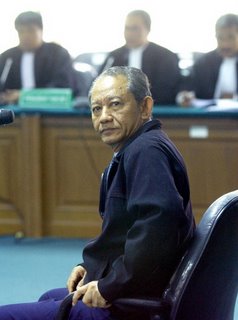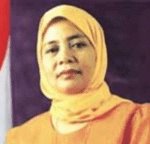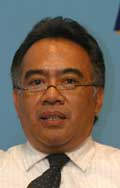Government finally decided to implement the controversial 5% export tax on coal despite opposition from coal mining companies. The final decision was taken yesterday during a limited cabinet meeting chaired by coordinating minister for the economy Boediono and attended by trade minister Mari Pangestu, finance minister Sri Mulyani Indrawati, industry minister Fahmi Idris, and high-level officer of the energy ministry.
In October, the finance minister decided to impose a 5% export tax on coal. The decision, however, drew strong opposition from coal producers saying that would serve as a disincentive to investment in the industry.
Indonesia has targeted total coal production at 155 million tons for 2005, about 70% of which would go to the export market. High international coal prices accounts for the current rise in Indonesia’s coal output. With export volume well above last year’s 100 million tones, the country’s coal export value could reach US$4 billion this year. A 5% export tax means a potential income of US$200 million to the state budget.
With reserves at 5.9 billion tones, over the next five years, Indonesia intends to double coal production, mainly with the intent to export it. But analysts argues that government should revise onerous regulations on VAT, royalties, and autonomy rift in order to make the country’s coal mining sector more competitive in the long run.
In 2000, the Indonesian government created a regulation that changed coal to a non-taxable commodity. This means that coal producers are unable to charge the end-users VAT despite the fact that they have to pay VAT for imported capital goods and services. This has also lead to a drop in foreign investment.
Older coal companies (first generation companies) have VAT reimbursement rights, and as such have not lost out too much by this regulation. Newer coal companies do not have the same rights and as a result pay an additional 8 to 10% on their production costs.
Key Players
1) PT Bumi Resources Tbk., a company affiliated with Bakrie Family (controlled by Aburizal Bakrie, the coordinating minister for people’s welfare) is the largest producer through two main coal subsidiaries PT Kaltim Prima Coal (KPC) and PT Arutmin Indonesia. Bumi Resources committed to sell 43.7 million tones of coal this year, about 27.5 million tones from KPC and 15.7 million tones from Arutmin.
2) PT Adaro Indonesia, a company controlled by Indonesian businessman Edwin Soeryadjaya, GIC Special Investments (a Singapore government agency that manages its long-term foreign reserves), private equity units of Citigroup Inc and Goldman Sachs. The company produces 27 million tones per year.
3) Banpu, Thailand. Over the last decade, the company has developed a significant presence in Indonesia, ranking as the fourth largest Indonesian coal producer with full production capacity of 19.4 million tonnes a year from 4 concessions companies, PT Jorong Barutama Greston, PT Indominco Mandiri, PT Kitadin Coporation, and PT Trubaindo Coal Mining. The company also has another two concessions namely Barasentosa and Bharinto, which are in the exploration stage.
4) Kideco Jaya Agung, owned by Samtan Co Ltd, South Korea (49%), Indika Group (41%), PT Sumber Mitra Jaya (5%), and PT Muji Inti Utama (5%). KIDECO is the third largest coal company in Indonesia in terms of coal production with a substantial reserve base of approximately 1.25 billion tones. KIDECO produced 16.9 million tones of coal in 2004.
5) PT Tambang Batubara Bukit Asam Tbk., a listed company majority owned by Indonesia government. Combined production capacity is 10 million tones per year.
6) PT Berau Coal, owned by Indika Group (controlled by Sudwikatmono family) at 60%, PT Armadian Tritunggal 30%, and Nissho Iwai Corporaton 10%. Berau Coal might surpass Bukit Asam as the fifth largest producer with projected output of 11 million tones per year, a significant increase from 8.5 million tones last year. Indika is rumored in the process to acquire another coal mining company.
Labels: Bakrie, Bumi Resources, COAL, Goldman Sachs, Indika, Sri Mulyani
READ MORE!!!







